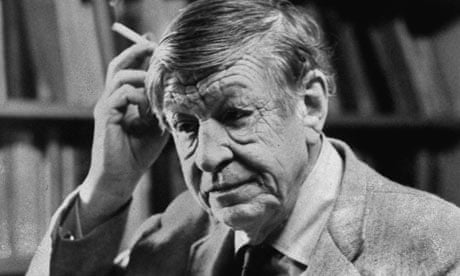Robert Graves, the war poet, once remarked that, "There's no money in poetry, but then there's no poetry in money, either." Penury has been a repeating motif for poets throughout the ages, but advertising has always been one possible source of income for the modern jobbing wordsmith.
Two prominent adverts, both of which lean heavily on the emotional appeal of poetry, are currently airing on our screens – a David Morrissey-narrated ad for McDonald's ("the Gothy types and scoffy types and like-their-coffee-frothy types were just passing by"), and a Pete Postlethwaite-narrated ad for Cathedral City cheddar cheese ("On the A47 it's cheese with cucumber / It's lunchtime for her as the rest of us slumber"). In recent years we've also seen poems used to advertise the AA, Waitrose, Center Parcs and the Prudential. But what do poets feel about this unsteady dance with commercialism?
"It doesn't always please me," says Roger McGough, the Liverpudlian performance poet. "It's like when you hear music used in an advert and you feel it has degraded it. But as long as the poems are used respectfully, I think it can be OK. Center Parcs used Leisure by William Henry Davies, and Waitrose used Keats's To Autumn. I wrote a poem for a Prudential ad campaign, but Adrian Mitchell said he wouldn't do it. Verse has always been used in adverts – memorable language and the expectancy of rhyme are powerful – but it has to be used respectfully."
Nick Toczek has also written a poem for an advert (the Prudential again: Our kids, who've grown and flown the nest, / Now only phone us to request / More cash on loan, their tone depressed"). He welcomes the exposure that advertising offers poetry.
"Shakespeare would have thought commercialism was worth it," he says. "Populism is good. The more language matters to people the better. Look how Auden sold after Four Weddings and a Funeral. But there is a line – I would have reservations about the politics of doing a poem for McDonald's, for example. But my Prudential poem is still the most recognised of all my poems. It took me 20 minutes to write, was broadcast 5,000 times and earned me £5,500."
Jim Bolton, the creative director at Leo Burnett, the ad agency that produced the McDonald's advert, says that many viewers probably don't even think they're hearing poetry. "The McDonald's Favourite ad is not a tricky poem. But there is a certain cheekiness of McDonald's using poetry. It is not something people might expect."
And then Bolton shares a secret: "It's actually based on Rolf Harris's song, Court Of King Caratacus. He gave us permission to use it, and then two of our copywriters changed the lyrics." That's poetic licence for you.
